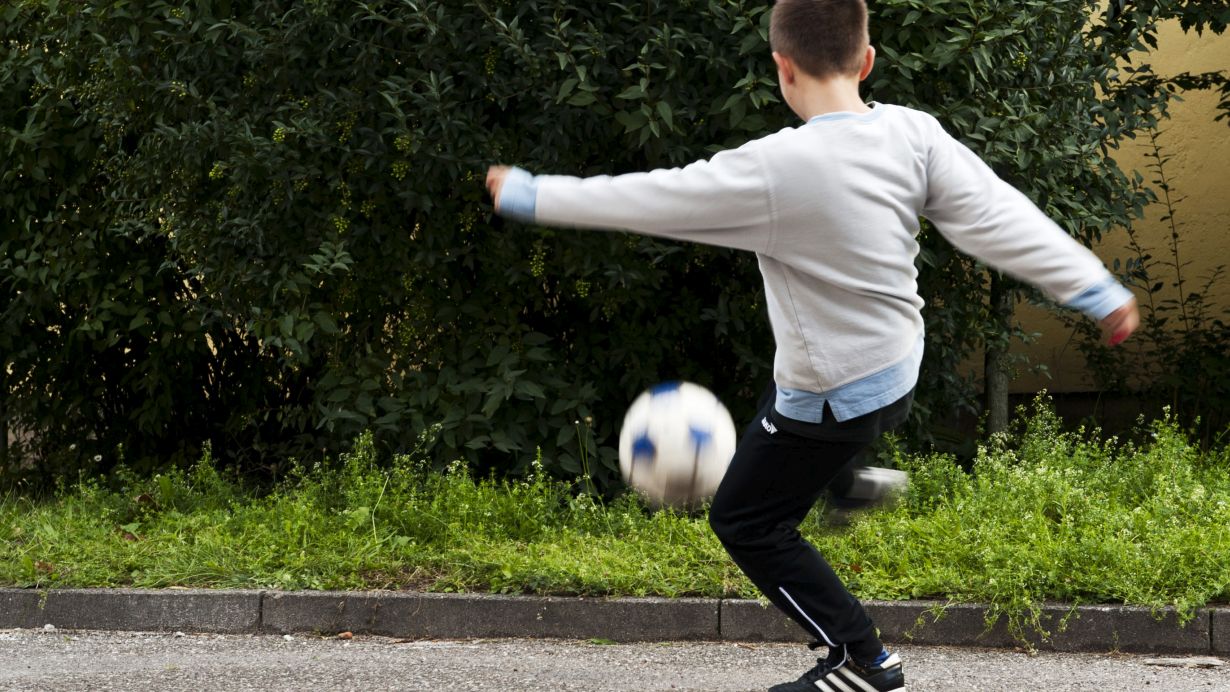Even before the pandemic, most children and adolescents in Germany had been less active than recommended by the World Health Organization. But when schools and sports clubs closed during the lockdown, children were more than ever prevented from doing 60 minutes of exercise needed to maintain health. Children stayed at home and did not even have to walk to school and back. For this reason, sports scientists of Karlsruhe Institute of Technology (KIT) now call on politics to launch an offensive for high-quality physical activity and sports of adolescents.
“We are very concerned about the pandemic leaving a generation lacking fitness. This will have negative impacts on health in the long term,” says sports scientist Professor Alexander Woll, Head of KIT’s Institute of Sports and Sports Science (IfSS). Together with colleagues of the Research Center for School Sports and Sports of Children and Adolescents (FoSS), the only institution of this kind in Germany, which was established by KIT and Karlsruhe University of Education, the researchers have now published five theses and eleven recommendations for promoting sports and physical activity to counteract the effects of the pandemic. On the occasion of the Education Day (December 8), they emphasize the acute need.
The theses stress the importance of physical activity of adolescents to life-long physical and psychic health and social well-being. They are based on data of the Germany-wide Motor Module long-term study and the Fitnessbarometer der Kinderturnstiftung Baden-Württemberg (fitness meter of the Baden-Württemberg Foundation for Children’s Gymnastics), which reveal, among others, a major decrease in daily physical activity and motor skills of children and adolescents during the second lockdown compared to the first one. “It is not only necessary to fill shortfalls in mathematics and German. Motor skills are indispensable for a holistic education. We should not leave any children behind,” says Dr. Claudia Niessner, Head of the Motor Module study.
Offensive for High-quality Sports Education
In the opinion of Woll, joint efforts are required on the federal, state, and municipal levels to maintain physical activity and sports offers at schools, clubs, and during leisure time. And a pact should be launched to guarantee extensive funding.
The Head of FoSS, Professor Swantje Scharenberg, recommends good networking of sports and education institutions on the municipal level (daycare centers/schools) to ensure high-quality physical activity offers in all settings (including school sports and mandatory sports lessons) for the lasting benefit of adolescents. “All over Germany, there are numerous sports organizations with big creative potentials and vast experience to develop new formats and concepts,” the expert adds. “The pandemic forced them to conceive many good, also digitally supported, offers and make them publicly accessible. We should pool these ideas for the healthy and active growth of children in an offensive for high-quality sports education and training!”
More Areas for Physical Activity in Cities
The theses also call on urban planners to create areas for physical activity, games, and sports in urban living environments with a view to support socially underprivileged children and adolescents. Niessner explains that children living in multistory buildings of big cities were found to reach the smallest level of physical activity during the pandemic.
The researchers suggest to implement concepts for high-quality digital physical activity across the federal states. “The pandemic gave rise to first good concepts for supplementary digital sports of children and adolescents,” Woll says and recommends to promote such approaches, assure their quality, and incorporate them in education plans.
The suggestions of the authors are based on findings obtained from the Germany-wide Motor Module long-term study (MoMo) that focuses on motor skills and physical activities of children and adolescents. “Germany-wide, long-term monitoring of motor skills and physical activities of children and adolescents is needed to observe future impacts of the pandemic and to create a database for interventions,” the researchers emphasize. The MoMo study that started in 2003 as part of the Study of Health of Children and Adolescents in Germany (KIGGS) of Robert Koch Institute (RKI) is scheduled to end in 2022.
Theses Paper (in German)
Woll, A., Scharenberg, S., Klos, L., Opper, E., & Niessner, C. (2021). Fünf Thesen und elf Empfehlungen zur Bewegungs- und Sportförderung für Kinder und Jugendliche vor dem Hintergrund der Corona-Pandemie. „Es ist bereits fünf nach Zwölf – wir fordern einen Bewegungspakt!“. KIT Scientific Working Papers, 174.
https://doi.org/10.5445/IR/1000139901/v2
In close partnership with society, KIT develops solutions for urgent challenges – from climate change, energy transition and sustainable use of natural resources to artificial intelligence, sovereignty and an aging population. As The University in the Helmholtz Association, KIT unites scientific excellence from insight to application-driven research under one roof – and is thus in a unique position to drive this transformation. As a University of Excellence, KIT offers its more than 10,000 employees and 22,800 students outstanding opportunities to shape a sustainable and resilient future. KIT – Science for Impact.

